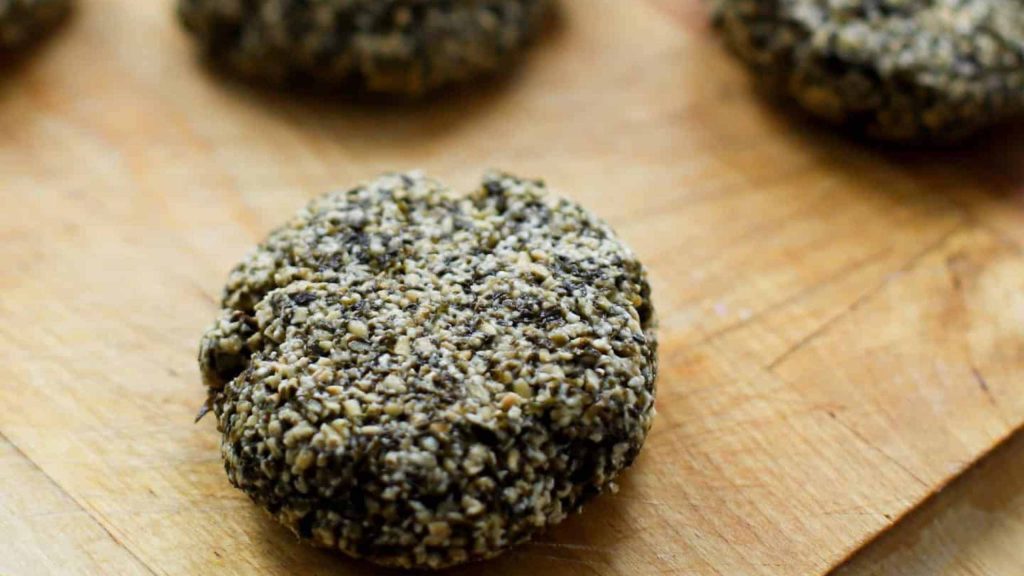Diving into the heart of Welsh tradition, Laverbread stands out not just as a dish but as a symbol of cultural pride and heritage. This unique delicacy, crafted from laver, a type of edible seaweed harvested from the Bristol Channel, encapsulates centuries of Welsh culinary practices. Its journey from the sea to the table is steeped in history, with records stretching back to the 16th century, painting a picture of a community deeply connected to its natural resources. Laverbread Day, celebrated every April 14th, emerged from the desire to honor this traditional food, transforming from a local festivity in Penarth in 2011 to an annual event that captivates both locals and visitors. Through cooking demonstrations, tastings, and cultural activities, this day not only showcases the versatility of laverbread but also highlights the importance of sustainable seaweed sourcing. As we peel back the layers of this culinary tradition, we're invited to savor not just the taste but the rich tapestry of history and culture that laverbread represents in Wales.
Key Takeaway
Timeline
Day Activities
-
Cooking Demonstrations Galore: On International Laverbread Day, chefs and culinary enthusiasts gather to whip up traditional and innovative laverbread dishes. From the classic laverbread served with cockles and bacon to modern twists that surprise and delight, these demos are a feast for the eyes and the palate. Attendees get a chance to see, taste, and learn how to make their own laverbread creations at home.
-
Taste the Tradition: Food stalls and local eateries pull out all the stops, offering free samples and special menus featuring laverbread in all its glory. Whether you're a laverbread newbie or a seasoned aficionado, there's no better way to dive into the flavors of Wales. Plus, it's a fantastic opportunity to chat with producers and chefs about their passion for this seaweed delicacy.
-
Cultural Deep Dive: Beyond the food, International Laverbread Day is steeped in Welsh culture. Talks and presentations shed light on the history of laverbread, from its humble beginnings to its status as a symbol of Welsh culinary heritage. Participants also explore the importance of sustainable seaweed harvesting, ensuring that this tradition can continue for generations to come.
Interesting Facts
1. Origins in Coastal Cuisine
Laverbread, a Welsh delicacy, comes from the Bristol Channel's shores, showcasing centuries-old culinary traditions.
2. Historical Documentation
Records from the 16th century confirm laverbread's longstanding presence in Welsh cuisine, highlighting its cultural significance.
3. First Celebration in Penarth
In 2011, Penarth became the pioneer, hosting the inaugural Laverbread Day, marking April 14 as an annual festivity.
4. A Day of Culinary Delight
Laverbread Day features cooking demos, tastings, and talks, emphasizing sustainable seaweed sourcing and Welsh culinary heritage.
5. Sustainability and Culture
This event underscores the importance of sustainably harvested seaweed, intertwining environmental stewardship with Welsh culinary traditions.
Why We Love This Day
-
Celebrating Welsh Heritage
Laverbread isn't just food; it's a slice of Welsh history on your plate. For centuries, folks in Wales have been munching on this seaweed delicacy, and having a whole day dedicated to it? Well, that's just the cherry on top. It's like stepping back in time with every bite, connecting with ancestors who probably enjoyed laverbread just as much. Plus, with all the events on Laverbread Day, from cooking demos to cultural activities, you get a full-on immersive experience into Welsh traditions. Talk about a tasty history lesson! -
Sustainability and Awareness
Here's the thing about laverbread: it's not only scrumptious but also a poster child for sustainable eating. Celebrating Laverbread Day shines a spotlight on the importance of sustainably sourced seaweed, reminding us all about being kinder to our planet. It's a day when we can learn a thing or two about where our food comes from and the impact of our choices on the environment. So, chowing down on laverbread isn't just good for your taste buds; it's a pat on the back to Mother Earth too. -
Community and Culture
Let's not forget the sense of community Laverbread Day brings to the table. Whether you're in Wales or halfway around the globe, this day has a way of bringing people together. Local restaurants, food producers, and even your next-door neighbor get into the spirit, whipping up their best laverbread dishes. It's a day filled with stories, laughter, and, of course, loads of tasty treats. You're not just celebrating a dish; you're part of a global community, sharing in a tradition that goes beyond borders. Now, isn't that something to love?
Past & Future Dates
| Month | Day | Year |
|---|---|---|
| APRIL | 14 | 2022 |
| APRIL | 14 | 2023 |
| APRIL | 14 | 2024 |
| APRIL | 14 | 2025 |
| APRIL | 14 | 2026 |
| APRIL | 14 | 2027 |
| APRIL | 14 | 2028 |
FAQ
What is the meaning of laverbread?
Laverbread is a traditional Welsh delight, concocting laver, a type of seaweed, into a sumptuous dish. This seaweed is simmered in water for multiple hours before being rolled in oatmeal and fried to perfection.
What does laverbread taste of?
Imagine capturing the essence of the Welsh sea in a bite; that's laverbread for you. Harvested by hand along the coast, laver, or Laver porphyra umbilicalis, brings a distinctive salty flavor and texture, reminiscent of the ocean's freshness.
Is laverbread a Superfood?
Absolutely, laverbread punches well above its weight in the nutritional ring. Brimming with essentials like protein, iron, iodine, and a suite of minerals, it’s a powerhouse that enriches any meal plan.
How was laverbread traditionally eaten?
Back in the day, Welsh folks liked their laverbread fried alongside bacon and cockles for breakfast. Not just stopping there, it served as a zesty sauce complement for meats and seafood, or as the base for a hearty laver soup, known locally as cawl lafwr.
